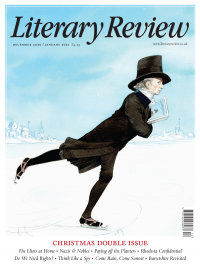Alice Jolly
Roads Less Travelled
The Invisible Land
By Hubert Mingarelli (Translated from French by Sam Taylor)
Granta Books 139pp £12.99
Two months after the end of the Second World War in Europe, a photographer finds himself in a German town on the northern reaches of the Rhine. His job is to photograph one of the death camps. When that assignment ends, he is given a car and a driver so that he can travel through the country. The photographer (who is never named) and his young driver, O’Leary, do not speak German. They have no map, no plan and limited supplies of petrol and food. Both are aware of their status as victors among the vanquished but doubt what has been gained.
The reader, travelling with this hapless pair, is immediately captured by the sparse elegance of Mingarelli’s prose and the power of the scenes described. The early passages may feel disjointed and fractured but it is soon clear that they mirror the traumatised state of the two main characters. The photographer cannot forget the tarpaulins used in the camp to cover the dead. Why did they blow away even when pinned down with stakes? The dead must have been ‘pushing at the tarpaulins with their grey legs’. He also remembers a flare that was fired one night over the camp, ‘lighting up the dead and the living in the same red glow’.
O’Leary arrived too late to fight in the war and feels excluded by those who did: ‘I haven’t shot at anybody and nobody has shot at me.’ Fragile and lonely, he wants to tell the photographer about his childhood in Lowestoft. Why did he leave his home at night and

Sign Up to our newsletter
Receive free articles, highlights from the archive, news, details of prizes, and much more.@Lit_Review
Follow Literary Review on Twitter
Twitter Feed
It wasn’t until 1825 that Pepys’s diary became available for the first time. How it was eventually decrypted and published is a story of subterfuge and duplicity.
Kate Loveman tells the tale.
Kate Loveman - Publishing Pepys
Kate Loveman: Publishing Pepys
literaryreview.co.uk
Arthur Christopher Benson was a pillar of the Edwardian establishment. He was supremely well connected. As his newly published diaries reveal, he was also riotously indiscreet.
Piers Brendon compares Benson’s journals to others from the 20th century.
Piers Brendon - Land of Dopes & Tories
Piers Brendon: Land of Dopes & Tories - The Benson Diaries: Selections from the Diary of Arthur Christopher Benson by Eamon Duffy & Ronald Hyam (edd)
literaryreview.co.uk
Of the siblings Gwen and Augustus John, it is Augustus who has commanded most attention from collectors and connoisseurs.
Was he really the finer artist, asks Tanya Harrod, or is it time Gwen emerged from her brother’s shadow?
Tanya Harrod - Cut from the Same Canvas
Tanya Harrod: Cut from the Same Canvas - Artists, Siblings, Visionaries: The Lives and Loves of Gwen and Augustus John by Judith Mackrell
literaryreview.co.uk